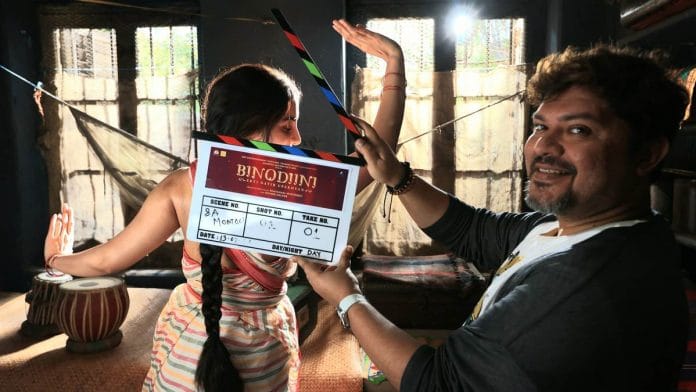Kolkata: By 26, Binodini Dasi had played 90 roles in 80 plays and helped build Kolkata’s Star Theatre — only to be cast out by the men who owed her their success. Eighty-three years after her death, her rise from courtesan to queen of Bengali theatre is finally getting its due in Binodiini–Ekti Natir Upakhyan, a lavish new film by Ram Kamal Mukherjee, releasing across India on 23 January 2025.
For Mukherjee, the story of Binodini Dasi — popularly known as Noti Binodini — is one of courage, talent, and strength of character. Born in 1863, she defied every convention of her era.
“It was a time when mostly male actors played female roles. Not only did she reverse the trend by playing male roles, but began the trend of women stepping into theatre,” Mukherjee said.
Yet, for all her success, Noti Binodini never quite got her due say both Mukherjee and her great-grandson Subrata Das, 64.
Standing outside yellow house with red and green windows — the boldest house on Noti Binodini Sarani — Das points out the irony. The street bears her name. A grand new film will tell her story. But within his own family, her name was barely spoken. His uncles, he recalls, refused to talk about Noti Binodini, fearing social ostracism.
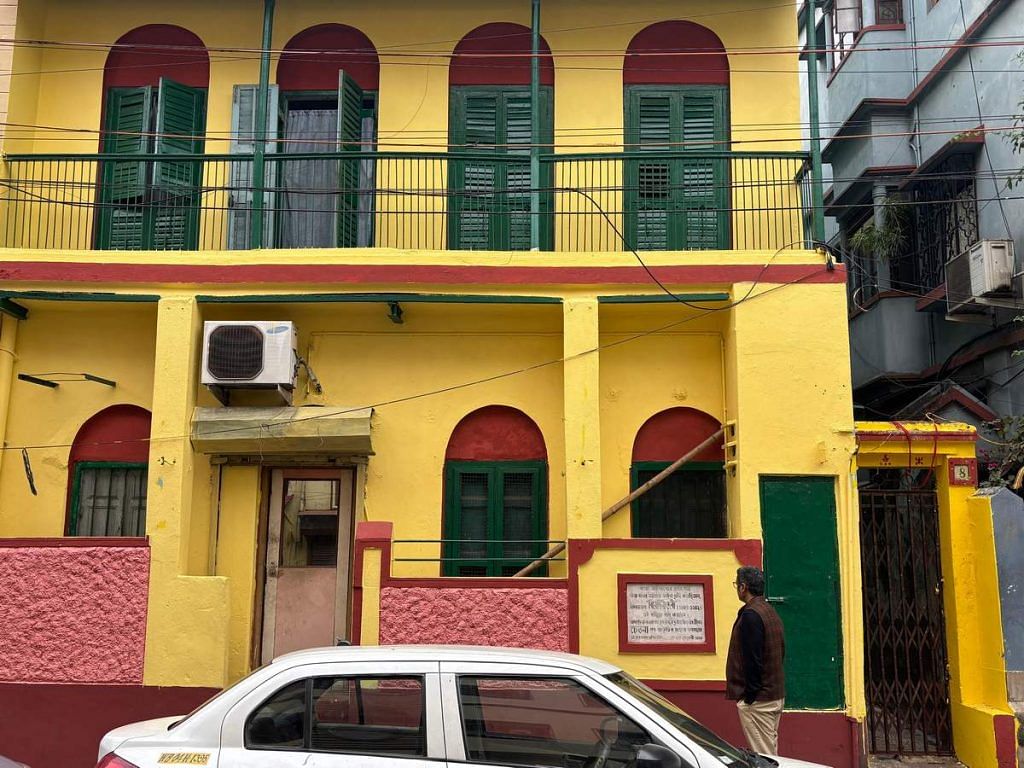
“I am a trained tantric and do yagnas for clients who come to me with their life’s problems. But there is no solution to society’s prevailing biases against a woman who revolutionised the Bengali theatre stage but was a courtesan before,” Das told ThePrint. “I am happy that a mainstream film will now capture’s her life’s story and the way she became not just a famous actress but a pioneering entrepreneur of the Bengali stage.”
He still lives and works at 4 Noti Binodini Sarani, where his great-grandmother spent her last years before her death in 1941.
For Rukmini Maitra, who plays Noti Binodini in the upcoming film, this film is as personal as it gets.
“She made it possible for actresses who came after her to be where they are today. She is reason why I am here today, working in films, giving interviews,” Maitra told ThePrint.
Also Read: Why’s Bollywood obsessed with Tawaifs? ‘Heeramandi’ brings back the stereotypes
‘Fallen woman’ to feminist icon
Two directors set out to tell Binodini Dasi’s story — but only one made it to the finish line. Pradeep Sarkar had planned a major Hindi biopic starring Kangana Ranaut, but his death on 24 March 2023 left the project on hold. Meanwhile, Bengali filmmaker Ram Kamal Mukherjee had been working on his own film for years. He announced Binodiini – Ekti Natir Upakhyan in 2018 — long before Sarkar’s project was even public.
Mukherjee insists there was never any rivalry between the two directors.
“Pradeep-da encouraged me to make the biopic, even though he had planned to tell Binodini Dasi’s story in Hindi with Ranaut playing her,” Mukherjee told ThePrint. “He said, if there can be seven films on Bhagat Singh, there can surely be two films on Binodini Dasi.”
While it’s a Bangla film, it will be the first time theatre legend’s story will be told for a pan-Indian audience, with English subtitles for those who do not follow Bengali. The cast includes Rahul Bose and Kaushik Ganguly in leading roles, and industry insiders say it was made on a budget of Rs 4.5 crore.
“This is a story of a so-called fallen woman who broke the barriers of class and became a bhadramohila or a woman of high standing,” said Mukherjee. “Before she retired at the rather young age of 26, the kind of success she saw was unimaginable.”
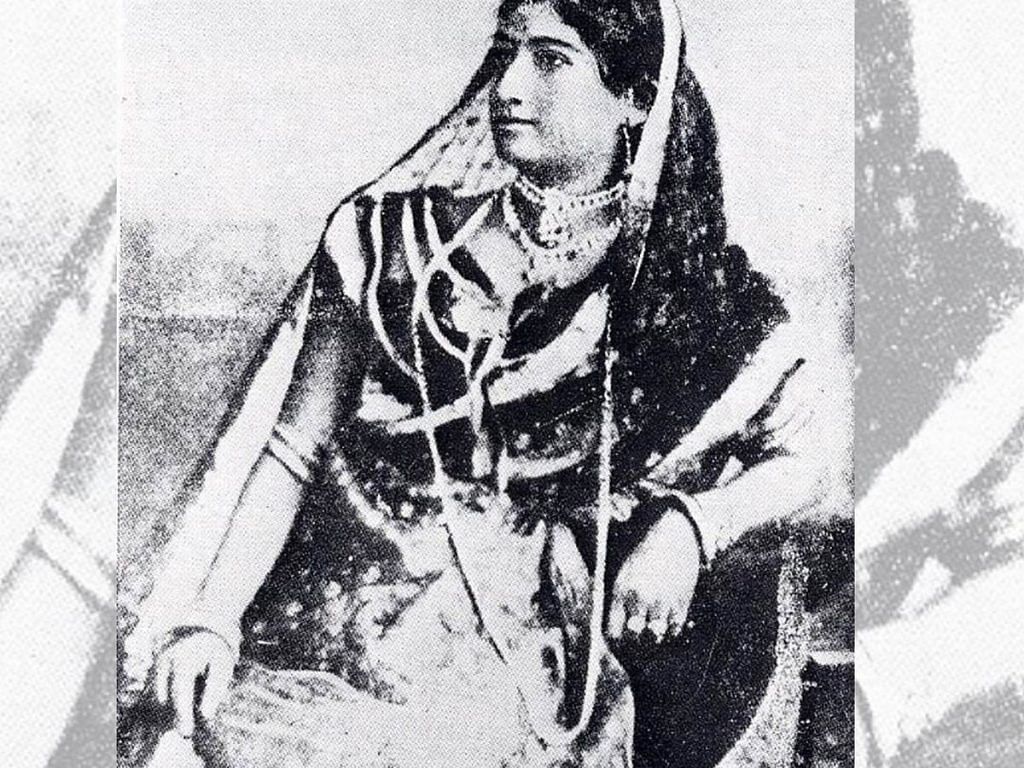
Binodini’s meteoric rise on stage is well documented. In a 2023 article, film scholar and author Shoma A Chatterji noted that that Binodini became one of the most celebrated performers of her era because she packed 90 characters into 80 plays in just 12 years.
“In ‘Meghnad Badh’, authored by Michael Madhusudan Dutta, she played six roles. Her performance in the title role in ‘Chaitanya Leela’ became so spiritually rich that intellectuals like Bankim Chandra Chattopadhyay, Edwin Arnold, author of Light of Asia, theosophist Col. Olcott appreciated it and Ramkrishna Paramhamsa blessed her after a show he attended,” Chatterji wrote.
The “spirituality” of Binodini’s performances was a defining element of her work, said Suchismita Das, assistant professor of sociology at Government General Degree College, Mangalkote, West Bengal.
“When she played the role of Shri Chaitanya in the play Chaitanya Leela, she described the experience as one where she felt the spirit of Chaitanya himself was flowing through her. She lost her sense of ego and instead let the realisation of Chaitanya be one with her own,” Das said.
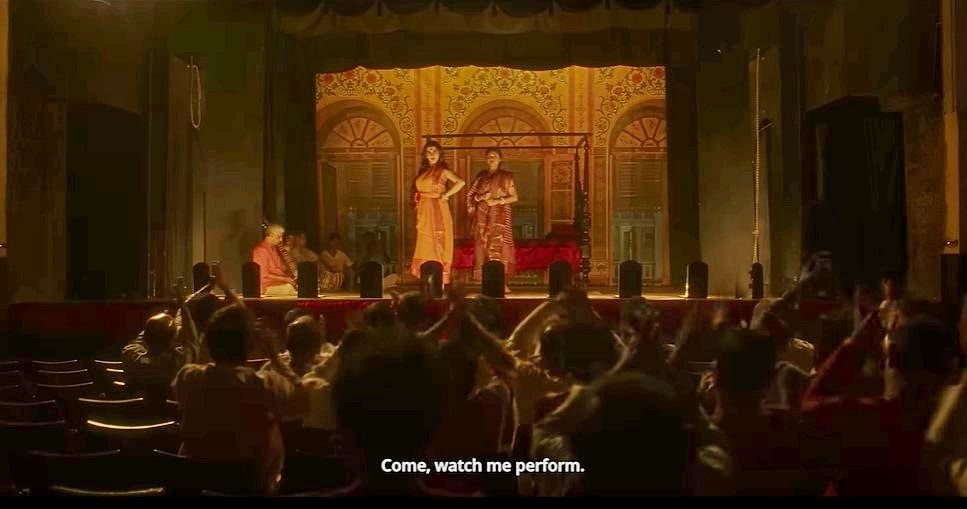
Yet, despite all the acclaim she got, Noti Binodini was never fully in control of her destiny. Like many actresses of the era, she had to rely on wealthy benefactors and patrons for financial survival.
“Even her mentor Girish Ghosh persuaded her to become the mistress of a rich Marwari businessman, Gurmukh Rai, when the theatre fell into bad days and the owner wanted to pull down the shutters,” Chatterji wrote.
Her life was also shadowed by betrayal. Bengali society was never truly comfortable accepting her as a theatre stalwart, said Suchismita Das.
Her relationship with Star Theatre became one of the most public blows to her career. Gurmukh Rai, the Marwari owner of the theatre— which Binodini had seen as an unconditional space for her artistic expansion and exposure— had promised her co-ownership as part of his decision to sell the business to a group of Bengali patrons.
“But these patrons forced Binodini out of Star theatre’s ownership. She was betrayed by the very society that wants to celebrate her today,” said Suchismita Das.
In the film, Maitra’s Binodini says: “My acting may be on sale…but don’t you dare try to buy out Binodini Dasi.”

For all the storms that she weathered and persevered through, Noti Binodini is a feminist icon for many. To Das, the actress not only broke the shackles of contemporary patriarchal society but also challenged the limits of modern Western feminism.
“While liberal feminism was centred around political rights and radical feminism on sexual liberation, Dasi fought through her identity as a courtesan without either denying it or weaponising it,” Das told ThePrint.
Also Read: After a long slump, Bangla film industry has a box office hit with Bohurupi
‘As glamorous as a Bollywood film’
Binodini Dasi’s story has been told and retold over the decades, each version adding something new to her legacy. The actor herself wrote two autobiographies: Aamar Katha (My Story) and Aamar Abhinetri Jeebon (My Life As An Actress). And Bengali cinema has reimagined her several times too.
In 1994, actress Debashree Roy played her in Dinen Gupta’s Nati Binodini. In 2010, Rituparno Ghosh’s Abohomaan drew on elements of her story, with Ananya Chatterjee playing a character inspired by her. In 2015, director Tuhinabha Majumdar adapted her autobiography into a documentary titled Aamaar Katha: Story of Binodini.

But no other film on Binodini Dasi has been as ambitious as Mukherjee’s upcoming film, starring Rukmini Maitra, who was also seen in the 2021 Hindi film Sanak.
“I wanted to make a Bengali film as glamorous as a Bollywood or a South film, with as much production value,” Mukherjee said. “I wanted to break the stereotype of a slow, arthouse Bengali film and make Binodiini—Ekti Natir Upakhyan a gorgeous period drama,” he said.
For model and actor Rukmini Maitra, playing Binodini demanded more than just emotional range — it required a physical transformation.
“To look like Binodini, Rukmini Maitra had to put on weight, gorge on rice, learn Kathak. She had to read up on Binodini’s life as well as the lives of actresses of that era. She undertook every struggle she had to in order to play a woman whose whole life was a struggle,” said Mukerjee.
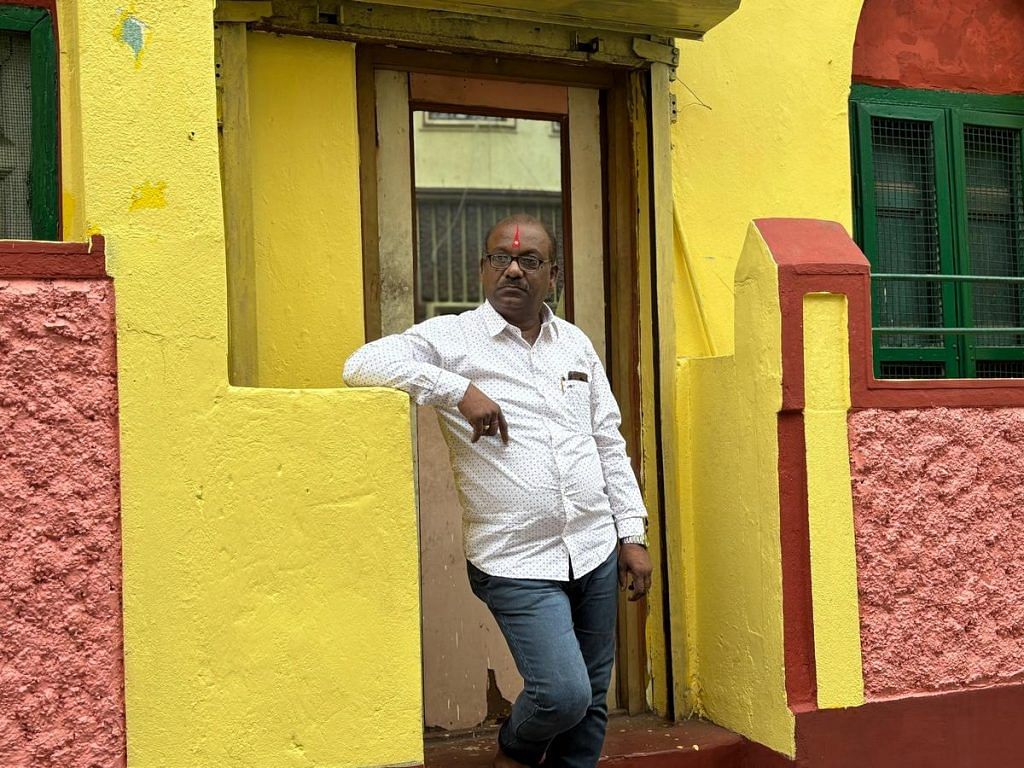
Maitra herself described the role as a rare, career-defining opportunity.
“As artistes, we are all greedy for roles that challenge us. Binodini is a once-in-a-lifetime role and I would not have let go of the opportunity. Though this is a period film, we have miles to go before we can truly break away from the shackles of patriarchy,” she said.
Back at the house where Noti Binodini lived, her great-grandson Subrata Das said the renaming of the lane as Noti Binodini Sarani many years after her death was the first fitting tribute to a life lived gloriously.
“The new film should celebrate that life,” he added.
(Edited by Asavari Singh)



